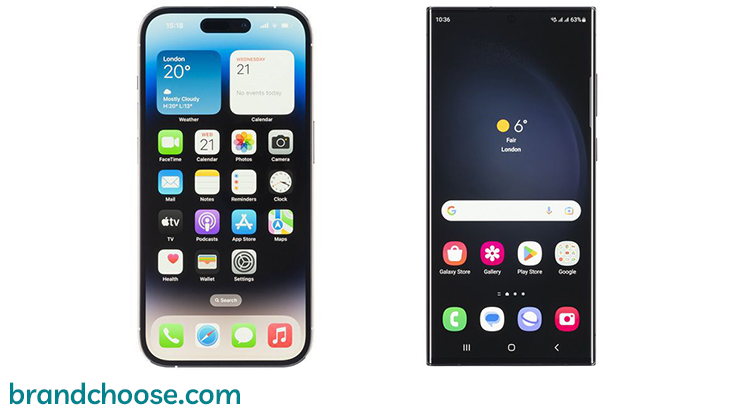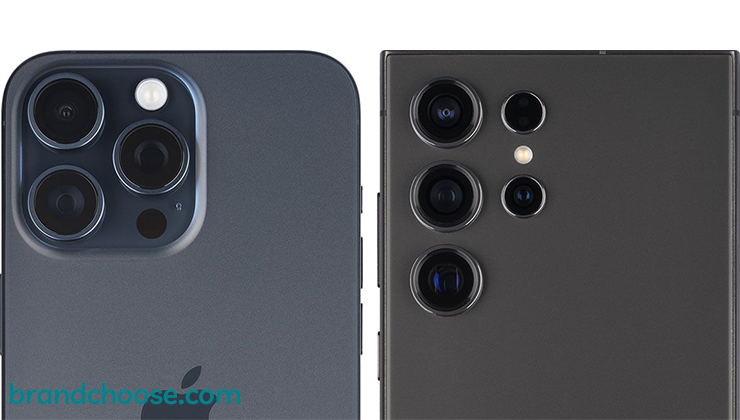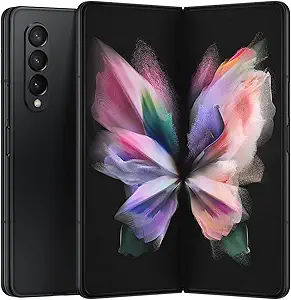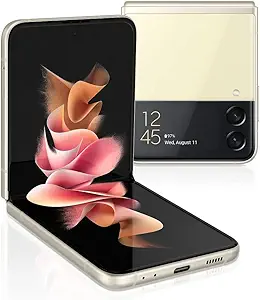In the ever-evolving realm of smartphones, two behemoths stand tall, each boasting loyal legions of followers and cutting-edge technology: Apple and Samsung. These tech titans have been in a perpetual duel for dominance, constantly pushing the boundaries of innovation to capture the hearts and wallets of consumers worldwide. Let's delve into the comparison of Apple smartphones and Samsung smartphones, examining their key features, strengths, and weaknesses in this epic clash of the titans.
Key Features Comparison
Product Selection
Apple and Samsung are two of the leading brands in the smartphone industry, each offering a diverse product selection to cater to various user preferences. Apple's product selection is centered around its flagship iPhone series, which includes the latest iPhone 13 models, iPhone SE, and the older yet still popular iPhone XR. Each model offers different specifications and price points to cater to a wide range of customers. However, Apple's product selection is more streamlined and limited compared to Samsung, focusing more on the premium segment of the market. On the other hand, Samsung offers a broader product selection, with its flagship Galaxy S and Note series, the foldable Z series, and the more budget-friendly A series. Samsung's latest flagship, the Galaxy S21, and the innovative Galaxy Z Fold3 and Z Flip3, showcase the brand's technological prowess. Samsung's product selection caters to a wider range of customers, from premium to budget, offering more options in terms of price, design, and features. However, this extensive product line can also lead to confusion among customers. In comparison to other brands, both Apple and Samsung stand out for their innovative technology and high-quality smartphones, but Samsung offers a more diverse product selection.

Availability
Apple and Samsung are two of the most renowned smartphone manufacturers globally, with a wide range of devices available in various markets. When it comes to availability, both brands have a significant presence in most regions, including North America, Europe, Asia, and Africa. They have a robust distribution network that ensures their products are readily available in physical stores and online platforms. However, there are some differences in their availability. Apple's latest models, such as the iPhone 12 or iPhone 12 Pro, are typically available immediately after their announcement in major markets but may take a bit longer to reach smaller markets. On the other hand, Samsung's availability varies with the model and region. High-end models like the Samsung Galaxy S21 are widely available shortly after their launch. However, some of their mid-range and budget models like the Samsung Galaxy A series may not be as readily available in certain markets. Additionally, Samsung has a broader range of devices catering to various price points, making it more accessible to a wider audience compared to Apple, which primarily focuses on the premium market segment.
Design/Look
When it comes to the design and look of smartphones, both Apple and Samsung have their unique approaches. Apple smartphones, particularly the latest iPhone 12 series, have a distinctive design with squared-off edges, giving it a sleek and modern look. The Ceramic Shield front cover offers more durability, and the selection of colors, including Pacific Blue and Gold, adds to the aesthetic appeal. However, some users find the notch at the top of the screen, which houses the front camera and FaceID technology, to be a bit intrusive. On the other hand, Samsung smartphones, especially the latest Galaxy S21 series, have a more rounded design with a punch-hole camera setup, providing a more uninterrupted screen experience. The Contour Cut Camera design seamlessly blends into the device’s metal frame for a sleek, yet striking, aesthetic. The variety of colors, including Phantom Violet and Phantom Gray, are also quite appealing. However, the plastic back on the S21 and S21+ models, a departure from the glass back in previous models, has been a point of contention among some users. Both brands offer high-quality design and build, but the choice between the two often comes down to personal preference.
Affordability
Apple smartphones, particularly the latest models like the iPhone 12 Pro, are generally priced higher than most Samsung smartphones. The iPhone 12 Pro, for instance, starts at $999, and the price increases with higher storage capacities. One of the reasons for this high price point is Apple's focus on integrating advanced technologies into their devices, such as the A14 Bionic chip, 5G capabilities, and professional-grade camera systems. However, the high cost can be a barrier for many potential users, especially those who are budget-conscious or do not require such high-end features. On the other hand, Samsung offers a wider range of smartphones at various price points. Their flagship models like the Galaxy S21 Ultra also come with high-end features such as the Snapdragon 888 processor, 5G capabilities, and advanced camera systems, yet it starts at a slightly lower price of $799. Samsung also offers mid-range and budget-friendly options like the Galaxy A series, making their smartphones more accessible to a wider range of consumers. However, it's important to note that while Samsung phones may be more affordable, they may not always offer the same level of performance or ecosystem integration as Apple devices.
Quality/Durability
When it comes to the quality and durability of smartphones, both Apple and Samsung are industry leaders that consistently deliver high-quality products. Apple smartphones, particularly the latest models like the iPhone 12 Pro Max, are known for their solid build quality. They feature Ceramic Shield front cover, offering four times better drop performance, and surgical-grade stainless steel frame, which significantly enhances their durability. However, Apple's glass back design can be prone to damage if dropped without a protective case. On the other hand, Samsung smartphones, such as the Galaxy S21 Ultra, also boast of exceptional build quality. They come with an aluminum frame and Gorilla Glass Victus on the front and back, which is currently the toughest glass available on any smartphone. Samsung also offers IP68 water and dust resistance on many of its models, providing an added layer of protection. However, Samsung's screens are known to be more expensive to replace if damaged. In comparison to other brands, both Apple and Samsung offer superior build quality and durability, but the cost of repairs can be higher due to the premium materials used in their construction.
Reputation
Apple and Samsung are two of the most reputable smartphone manufacturers in the world, each with a distinct reputation in the market. Apple, known for its innovation and premium quality, has a reputation for creating smartphones that are not only technologically advanced but also have a sleek and stylish design. The brand's latest iPhone 12 series, for example, boasts the A14 Bionic chip, which is the fastest chip ever in a smartphone, and a Ceramic Shield front cover, offering four times better drop performance. However, Apple's high pricing is often a point of contention among users, and the brand's exclusivity to iOS can limit customization options. On the other hand, Samsung is recognized for its wide range of smartphones catering to various price segments, from budget to high-end. The brand's reputation for versatility and innovation is evident in its latest Galaxy S21 series, which features the new Exynos 2100 or Snapdragon 888 chipsets and Dynamic AMOLED 2X display for a more immersive viewing experience. However, Samsung's extensive product line can sometimes lead to inconsistencies in quality and performance across different models. Additionally, while Samsung's use of the Android operating system offers more flexibility and customization, it can also expose users to potential security risks. Both brands have a strong reputation, but they cater to different user preferences and needs.
Customer Support & Warranty
When it comes to customer support, both Apple and Samsung smartphones offer robust services, but they each have their unique strengths. Apple is renowned for its customer-centric approach, providing a seamless and efficient customer support experience. They offer a variety of support channels, including phone, chat, email, and in-person support at Apple Stores via the Genius Bar. Their support website is also comprehensive, providing a wealth of self-help resources. AppleCare, their extended warranty and technical support plan, is also highly regarded for its coverage and service quality. However, it is worth noting that Apple's customer support, particularly AppleCare, comes at a premium price. On the other hand, Samsung also provides strong customer support, with multiple channels such as phone, chat, email, and in-person support at Samsung Service Centers. Samsung's support website offers a range of self-help resources, including user manuals, troubleshooting guides, and FAQs. Samsung Care, their protection plan, provides extended coverage and support. Samsung also offers a unique service called Samsung Members, an app that provides 24/7 customer support, device diagnostics, and exclusive content for Samsung users. However, some users have reported inconsistent experiences with Samsung's customer support, varying from excellent to less satisfactory. Comparatively, Samsung's customer support services are generally more affordable than Apple's.
Battery Life
Apple smartphones, particularly the latest models such as the iPhone 12 Pro Max, are equipped with a 3687mAh battery which supports fast charging and can reach up to 50% in around 30 minutes. The iPhone 12 Pro Max has a video playback battery life of up to 20 hours, which is impressive. However, one of the downsides of Apple smartphones is that their battery capacities are often smaller compared to other brands, and they do not support reverse wireless charging. On the other hand, Samsung smartphones, especially the newer models like the Samsung Galaxy S21 Ultra, come with a larger 5000mAh battery. This smartphone supports fast charging, wireless charging, and also reverse wireless charging. The Galaxy S21 Ultra has a video playback battery life of up to 22 hours, which is slightly better than the iPhone 12 Pro Max. However, the actual battery life can vary depending on the usage, settings, and other factors. Therefore, while Samsung smartphones generally offer larger battery capacities and more charging features compared to Apple smartphones, the actual battery life performance may not be significantly different.
Sound Quality
Apple and Samsung are two of the leading smartphone brands in the world, and both have made significant strides in terms of sound quality. Apple smartphones, particularly the iPhone 12 Pro Max, are equipped with spatial audio and Dolby Atmos, offering a surround sound experience. The speakers are well balanced and provide clear and loud audio, making them ideal for music and video playback. However, they lack a 3.5mm headphone jack, which may be a drawback for some users who prefer wired headphones. On the other hand, Samsung smartphones, specifically the Galaxy S21 Ultra, have stereo speakers tuned by AKG, which deliver rich and immersive sound. They also support Dolby Atmos for a 3D surround sound experience. Additionally, they have maintained the 3.5mm headphone jack in many of their models, offering flexibility to users. However, some users have reported that the sound can sometimes be a bit tinny at higher volumes. Both brands offer excellent sound quality, but the choice between the two may come down to personal preference and the importance of features such as the headphone jack.
Display
Apple and Samsung smartphones have long been at the forefront of the smartphone industry, with each brand boasting its own unique display technologies. Apple's latest iPhone models, such as the iPhone 12 Pro, feature Super Retina XDR displays. This OLED display offers a high resolution of 2778 x 1284 pixels and supports HDR10 and Dolby Vision, providing a vibrant and sharp viewing experience. However, the display is not as bright as some competitors, and some users have reported issues with color accuracy. On the other hand, Samsung's flagship models, like the Samsung Galaxy S21 Ultra, utilize Dynamic AMOLED 2X displays. This technology provides a high resolution of 3200 x 1440 pixels and supports HDR10+, offering an even more vibrant and detailed viewing experience than Apple's displays. The S21 Ultra's display also boasts a high peak brightness, making it easier to use in direct sunlight. However, the high resolution can drain battery life more quickly, and some users find the color saturation to be overly intense. Compared to other brands, both Apple and Samsung offer some of the best displays on the market, but Samsung's displays are generally considered to be the more technologically advanced of the two.
Performance
When it comes to performance, both Apple and Samsung smartphones offer top-tier capabilities, but they approach it in different ways. Apple smartphones, specifically the latest iPhone 12 series, are powered by the A14 Bionic chip, which is the first 5-nanometer chip in the industry. This chip has a 16-core Neural Engine that can perform up to 11 trillion operations per second, resulting in improved performance for machine learning tasks. Additionally, Apple's iOS operating system is optimized to work seamlessly with the hardware, providing a smooth and responsive user experience. However, Apple's closed ecosystem may limit customization options and flexibility for some users. On the other hand, Samsung smartphones, particularly the latest Galaxy S21 series, are powered by the Exynos 2100 (global version) or Snapdragon 888 (US version), both of which are also 5-nanometer chips. These chips offer high performance and energy efficiency. Samsung's One UI, based on Android, is highly customizable and offers more flexibility compared to iOS. However, some users have reported that Samsung's software updates are not as timely or consistent as Apple's. Furthermore, while both brands' smartphones can handle demanding tasks such as gaming and multitasking with ease, benchmark tests often show Apple's chips outperforming Samsung's in terms of raw power.
Camera Quality
Apple and Samsung are two leading brands in the smartphone market, each boasting high-quality camera technology. Apple smartphones, notably the iPhone 12 Pro Max, feature a triple camera system with 12MP ultra-wide, wide, and telephoto lenses. It also includes Night mode, Deep Fusion, and Smart HDR 3 for stunning low-light and detailed photography. The iPhone 12 Pro Max also boasts of a LiDAR scanner for improved Night mode portraits and next-level AR experiences. On the other hand, Samsung smartphones, particularly the Samsung Galaxy S21 Ultra, offer a more versatile camera system. It comes with a 108MP wide lens, 12MP ultra-wide lens, and two 10MP telephoto lenses for 3x and 10x optical zoom. It also features a 100x Space Zoom, which is Samsung's most advanced zoom yet. In terms of camera software, Apple's computational photography is highly praised for its consistency and color accuracy. However, it lacks the manual controls that some professional photographers might prefer. Samsung, on the other hand, offers a Pro Mode that gives users more control over the camera settings. While Samsung's camera system offers more versatility and higher resolution, it sometimes struggles with color accuracy and consistency compared to Apple. Both brands, however, offer impressive camera systems that are among the best in the smartphone market. They each have their strengths and weaknesses, and the choice between the two often comes down to personal preference and specific photography needs.

Related Videos
Conclusion
In the ongoing battle between Apple and Samsung smartphones, both companies continue to push the boundaries of innovation, striving to deliver the ultimate smartphone experience to consumers worldwide. While Apple excels in design, ecosystem integration, and user experience, Samsung shines in versatility, display technology, and camera innovation. Ultimately, the choice between an Apple or Samsung smartphone boils down to personal preference, priorities, and ecosystem loyalty. Whether you're drawn to the iconic design and seamless integration of Apple devices or the versatility and innovation of Samsung smartphones, one thing is certain: the competition between these tech titans will continue to drive innovation and shape the future of the smartphone industry for years to come.




















